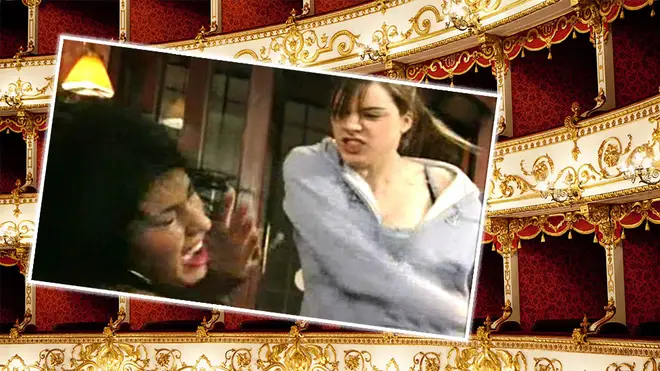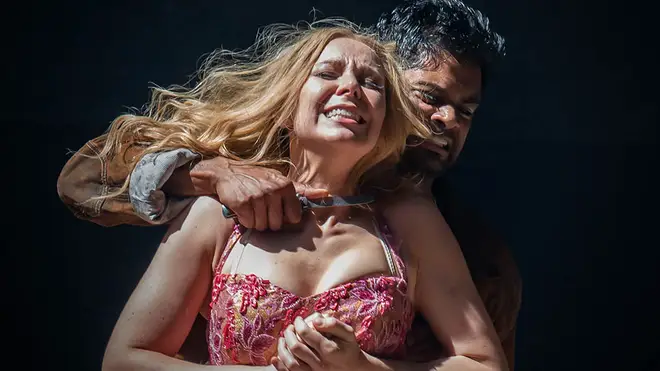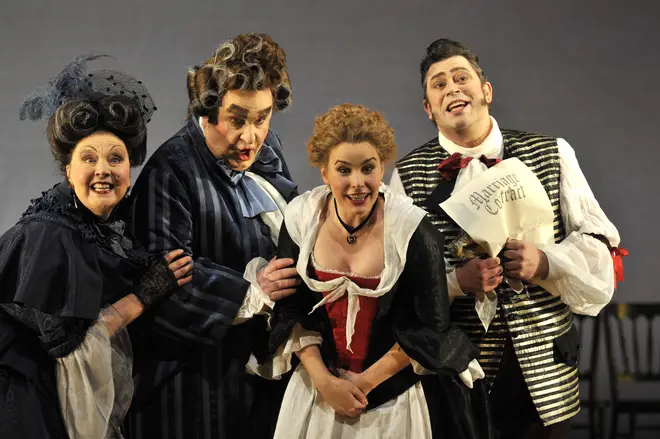Why are they called soap operas – and what do they have to do with opera?
25 February 2020, 09:24 | Updated: 25 February 2020, 09:26

Soap operas. You know them, the serial dramas on daytime TV. And as their name suggests, they’ve got a heck of a lot in common with the musical melodramas patented 300 years earlier.
Who needs The Crown when you’ve got Corrie? Soap operas were the binge-able Netflix shows of their day, and the long-running TV and radio melodramas – packed with sentimentality and domestic drama, and always based around the daily lives of the same group of characters – are still keeping masses of people hooked.
Coronation Street and EastEnders, according to recent audience research numbers, boast 6 and 4.5 million viewers respectively per show, largely thanks to their surprisingly gritty plot lines.
Corrie has previously made headlines for its controversial ‘Carla Connor rape’ storyline, which aired in 2011. And a few years later, the daytime TV show celebrated its 50th anniversary with a particularly harrowing explosion and tram crash, which ended in a devastated town, two deaths and a premature birth.
Read more: EastEnders composer reunited with ‘lost’ original score >
Dramatic and strange, exaggerated storylines… which other art form does that remind you of? Ah yes! Opera.

Why are soap operas called soap operas?
As with many colloquial things, exact origins are hard to track down. But many people will tell you that the ‘opera’ part comes from... (pauses for cliffhanger-effect), opera.
From Mozart to Verdi, many of the most popular operas revolve around people, the grand and the lowly, and family stories. When Puccini hit the scene around the turn of the 20th century, the term for the operatic drama in fashion was Verismo (translated as ‘true’ or ‘real life’). A big part of opera has since been rooted in everyday dramas, albeit fairly ridiculous ones. Just like your daytime stories.
In The Marriage of Figaro, the Count, wanting to seduce Susanna – to whom Figaro is betrothed – tries to set Figaro up with Marcellina, a woman old enough to be his mother. Turns out, she actually is his mother. In the opera, she nearly faints but ultimately seems happy that she can still love Figaro, albeit in a slightly different way.
Any soap enthusiast worth their salt will be reminded now of that theatrical cliff-hanger in EastEnders – since voted the best storyline in a soap – in which Zoe Slater screams down the street to Kat Slater, “You ain’t my mother”, and she replies, “…Yes I am!” (cue ‘doof, doof, doof’ theme).
Read more: Giant tap-dancing noses star in surreal Shostakovich opera >

Kat and Zoe Slater | "You ain't my mother!" | EastEnders
Violent, and often unnecessary, deaths are also an essential part of opera. Strauss is really good at it. In Elekra, the title character is hellbent on murdering her mother and her lover to avenge the death of her father. She ends up going through with it, along with her brother, Orest. They commit matricide and get away with it.
Then you’ve got Bizet’s Carmen, where soldier Don José kills the seductress title character in a jealous rage when she refuses him.
Whether it’s murder by the hand of a jealous husband, a wife or female lover gone mad, or just some questionable inter-familial relations (we’re looking at you, Wagner – we know what filth you’ve got in Die Walküre), death, sex and family drama have always been at the heart of opera – as they have soap operas.

As for the ‘soap’ part...
Although we British audiences tend to think of the biggest soap operas as being EastEnders, Coronation Street and Emmerdale, ‘Soap opera’ is actually an Americanism dating back to 1935-50 – so named, because radio dramas were sponsored by soap manufacturers.
These dramas, which were all broadcast in the daytime, were mainly consumed by housewives, who were spending their days at home cleaning and keeping house.
Cleaning companies cottoned onto this, and soon soap manufacturers became the main sponsors of the TV dramas.






















